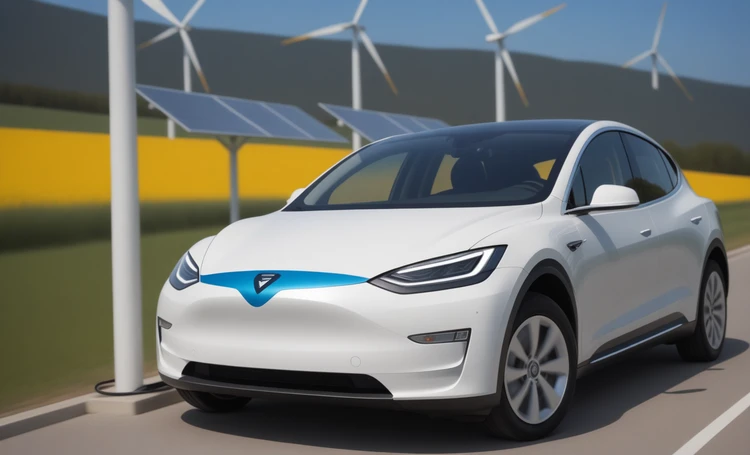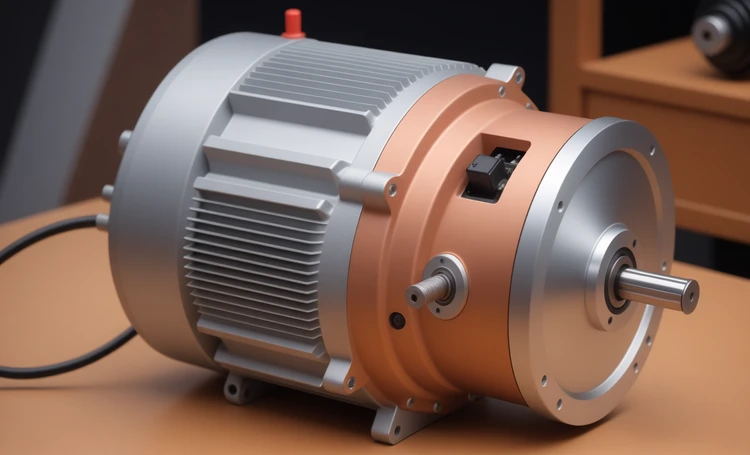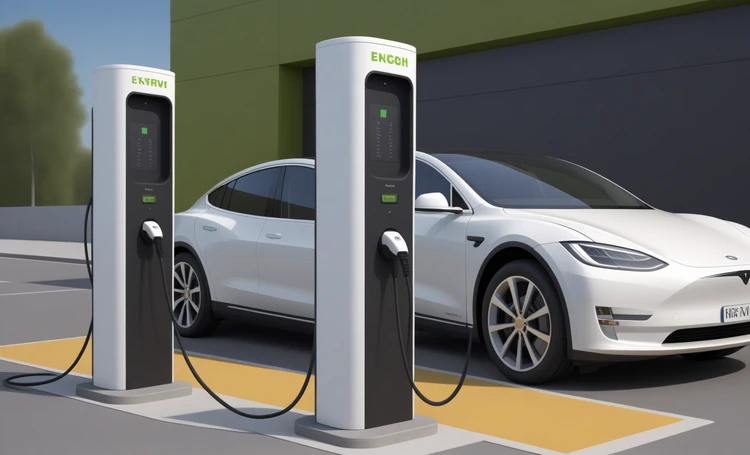⚡🔋Motor comparison: advantages of electric motors
The modern automotive world is actively moving towards the use of electric engines, leaving behind traditional gasoline and diesel units. The transition to electrification is not only a fashion trend, but also a necessity caused by environmental and economic factors. In this article we will take a closer look at why electric motors have a number of advantages over their traditional counterparts.
🔍 Main differences between engines
Gasoline and diesel engines
Gasoline and diesel engines have long been the standard in the automotive industry. They operate on the basis of internal combustion, where fuel is mixed with air, ignited and pushes pistons. This process leads to the release of exhaust gases that are harmful to the environment.
Electric motors
Electric motors, on the other hand, convert electrical energy directly into mechanical energy. They do not produce exhaust gases, which makes them more environmentally friendly. These motors provide a smoother, quieter ride and are more energy efficient.
🌍 Environmental benefits of electric motors
Electric motors are critical to reducing emissions of carbon dioxide and other pollutants. Unlike petrol and diesel engines, they produce no direct exhaust gases, which significantly reduces their carbon footprint.
Reducing air pollution
Without vehicle -level emissions, electric engines help combat urban air pollution. This is especially important for large cities, where air pollution levels often exceed norms.
Reducing noise pollution
Electric cars are significantly quieter than their petrol and diesel counterparts. This reduces the level of noise pollution, making urban spaces more comfortable to live in.
Sustainability and Renewable Energy
With the ability to harness energy from renewable sources such as solar or wind power, electric cars are facilitating the transition to more sustainable forms of transport.
💡 Economic aspects
Saving on fuel and maintenance is one of the key benefits of electric cars.
Reduced fuel costs
Electricity is significantly cheaper than gasoline or diesel, which allows electric vehicle owners to significantly save on fuel.
Lower maintenance costs
Electric motors have fewer moving parts and do not require as much regular maintenance as traditional motors. This reduces the overall cost of operating the vehicle.
Government incentives and subsidies
In many countries, electric vehicle owners can count on tax breaks, subsidies and other forms of support, making their purchase even more attractive.
🚗 Technical advantages of electric motors
The technical characteristics of electric motors also contribute to their popularity. They provide better dynamics, high efficiency and ease of operation.
High efficiency and productivity
Electric motors are highly efficient and are able to deliver maximum torque right from the start, allowing for fast, lag-free acceleration.
Simplicity and reliability
With fewer moving parts and no need for a complex transmission, electric motors provide smoother, more reliable handling.
Regenerative braking
Electric cars use regenerative braking, which allows some energy to be restored back into the battery, thereby increasing overall range.
🌏 Global trends and future of electric vehicles
Electric vehicles are becoming increasingly popular around the world, as evidenced by many global initiatives and trends.
Policy and legislative initiatives
Many countries are actively introducing legislation to reduce carbon dioxide emissions, encouraging the use of electric vehicles and limiting sales of fossil fuel vehicles.
Development of charging station infrastructure
As the popularity of electric vehicles grows, the network of charging stations is expanding, making the use of such vehicles increasingly convenient.
Innovation in Battery Technology
Continued research and development in battery technology promises increased energy capacity and shorter charging times, making electric vehicles even more attractive.
📊 Comparative analysis of engines
Let's look at a comparison chart of the characteristics of gasoline, diesel and electric engines to better understand their advantages and disadvantages.
| Characteristic | Gasoline engines | Diesel engines | Electric motors |
|---|---|---|---|
| Environmental friendliness | Low | Average | High |
| Saving | Average | High | Very high |
| Dynamics | good | good | Excellent |
| Service | Regular | Regular | Minimum |
| Price | Average | High | High but decreasing |
🌱 Environmental aspect and sustainable development
The environmental aspect of using electric motors is important in the context of sustainable development.
Reducing carbon emissions
Electric vehicles produce no CO2 emissions during operation, which significantly reduces the overall amount of harmful emissions into the atmosphere, especially when using renewable energy sources to charge them.
Reducing noise pollution
Thanks to the quiet operation of electric motors, electric vehicles help reduce noise pollution in cities, improving the quality of life in urban environments.
Contribution to the transition to renewable energy sources
The growing popularity of electric vehicles is driving the development and integration of renewable energy sources, such as solar and wind power, into the energy system.
💡 Innovation and the future of electromobility
Innovations in electric mobility promise disruptive changes in the future of the automotive industry.
Development of new battery technologies
Intensive research is underway to create more efficient and longer-lasting batteries, which will increase the range and reduce the charging time of electric vehicles.
Autonomous driving
As self-driving technology advances, electric vehicles will not only become more environmentally friendly, but also more convenient to use, opening up new opportunities to improve traffic and safety.
Integration with smart technologies
Electric vehicles are becoming part of smart city ecosystems, integrating with technologies ranging from charging management systems to data exchange to optimize traffic flow.
📈 Conclusion: Prospects and challenges
Electromobility represents the future of the automotive industry, but it also faces certain challenges.
Infrastructure development
For the full distribution of electric vehicles, further development of the infrastructure of charging stations and maintenance services is necessary.
Cost reduction
An important factor is to reduce the cost of electric vehicles to make them accessible to a wide range of consumers.
Solving environmental issues
It is also necessary to resolve issues related to the disposal of used batteries and ensuring the environmental friendliness of the entire production and operation cycle of electric vehicles.
Electric cars are not just the transport of the future, but also the key to sustainable development and environmental safety on the planet.



